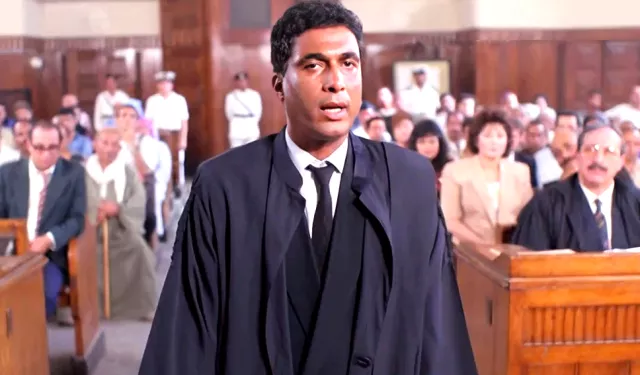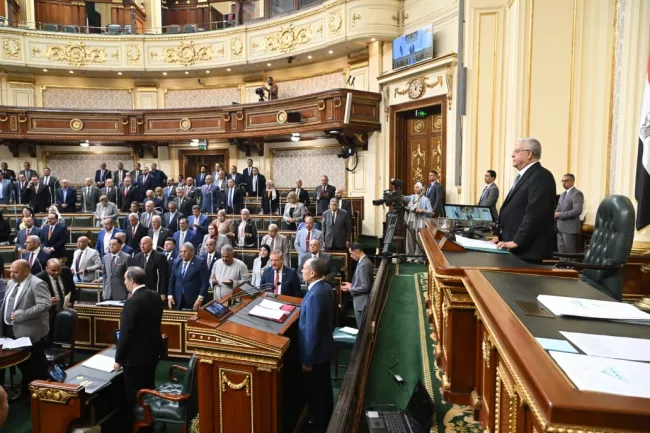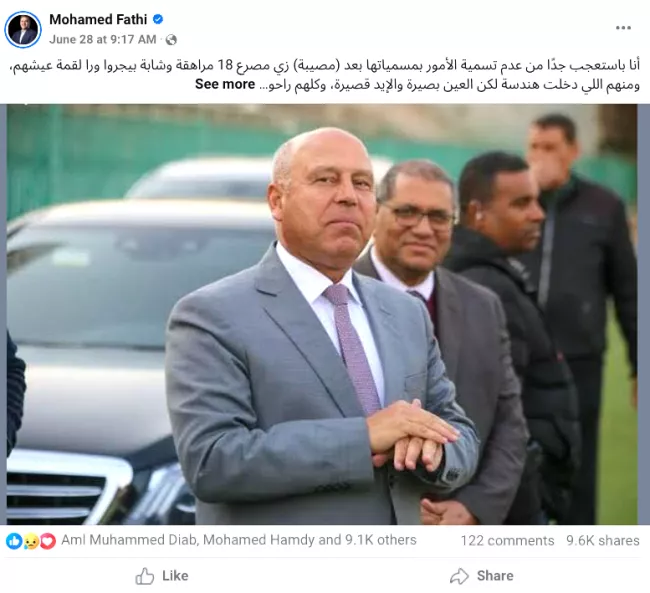
Parliament Diaries| A nation lost to lack of accountability
As I write these lines I sense my deep grief colliding with intense anger. I report on the Parliament, but I wonder if writing at this moment is of any use. In absence of accountability would I be just repeating what’s already been said?
My mind is crowded with contradictory images: the faces of the victims of the Regional Ring Road blurred with the expressions of MPs and ministers exchanging cold words, as if they belonged to a parallel universe, so detached they nearly blamed the dead for their fate.
The crash on the regional road in Menoufiya, which killed 18 girls -mostly minors- and the driver, has reignited questions about who should be held accountable for the bloodshed on Egypt’s deadly roads.
The tragedy harks back to Atef El-Tayeb’s courtroom film, “Against the Government,” which traced blame from the signal operator all the way up to the minister.
Today, once again we’re debating: does the responsibility lie with the truck driver or the minister?
Al-Galala — Menoufiya /Round Trip
The distance between Al-Galala road and the regional road may seem vast—geographically and socially. But it closes in instantly at the sight of the first drop of blood.
Al-Galala witnessed the death of 12 medical students last October. Most came from families who had gone into debt for a shot at upward mobility through expensive private education, far from the din of the old city.
In Menoufiya, the Regional Ring Road witnessed the death of girls from modest rural families only hoping to earn a daily living. Their fate was no different. They died on a highway inaugurated in 2017 as part of the “New Republic’s” mega infrastructure plan.
The victims on both roads lost their lives on roads that cost the state tens of billions of pounds. The two tragedies show that, regardless of where you were born or how rich you are, roads in Egypt unite us all in grief and lay bare the absence of any accountability; our blood is spilled so cheap.
Where is Parliament?
At the time of Al-Galala crash, only a few MPs reacted to the tragedy. The Parliament never even dedicated a general session.
One of those few motions came from MP Freddy Elbaiady of the Egyptian Social Democratic Party, who filed an inquiry requesting summoning the ministers of transportation, health, and higher education. I asked Elbaiady two days ago about the fate of his request. He said “No one ever questions the minister.”
As for Menoufiya, death on the “death road” wasn’t new to MPs. The 400 km highway connecting 15 governorates has seen its share of devastating crashes. Last October, Mahmoud Al Boray, the Nation’s Future Party MP representing El-Bagour district, submitted a briefing request stating that “operating traffic in both directions on a single lane, due to maintenance, has caused horrific daily accidents.”
Such requests lead nowhere, especially with the continued absence of Minister of Transport Kamel Al-Wazir from the Transportation Committee meetings. Waiting for the official to show up, requests collect dust next to dozens of stalled motions.
But the scale of the Menoufiya tragedy, together with the wave of public and sympathy for the girls of Kafr Al-Sanabsa, forced a more visible response. Speaker Hanafy Gebaly opened the session with a minute’s silence.
Gebaly allotted 45 minutes of the general session for urgent statements from MPs and government responses. After days of silence, the Transportation Committee declared via its chair, MP Alaa Abed, that they had been in continuous session “hour by hour” since the incident, “under directives from the Speaker.”
The general session saw calls for a fact-finding committee, urgent road repairs, and questions about maintenance.
Still, Parliament has yet to announce any action, be it an investigation committee or questioning of any minister.
Who runs the roads?
Across both the majority and opposition benches, two MPs struck a rare note of convergence; Alaa Abed of the pro-government Nation’s Future Party and independent MP Diaa El-Din Dawood. Both agreed the crisis goes beyond the Ministry of Transport or whether Parliament can hold Kamel Al-Wazir accountable; the problem lies elsewhere.
Dawood criticized the fragmentation of road governance that renders billions in public spending essentially “wasted.” He said, “We’re not reinventing the wheel. This isn’t chemistry. It’s just road management. But what we’re facing is a turf war between institutions. And I’m ready to name names—names we won’t be able to summon to Parliament.”
He continued, “Can anyone summon Maj. Gen. Magdy Anwar to Parliament? He heads one of the largest companies managing Egypt’s roads. Does anyone even know where the company revenues end up? or what maintenance is it funding?”
Alaa Abed, chair of the Transportation Committee, said he had sent a memo to the Speaker “naming several entities—not just the Roads and Bridges Authority—but other concerned parties, so we can reach a system for proper road management.”
Is this really a bureaucratic turf war, with overlapping mandates and blurred responsibilities? Are these entities battling over jurisdiction at the expense of Egyptians’ lives?
We may not get clear answers to Dawood’s questions, or even to Abed's hints. Which is why it may be most appropriate to heed Dawood’s call for direct presidential intervention—to demand accountability from those who allowed this gross negligence to touch billions of loan money. “We didn’t build these roads from surplus revenues,” he said. “We borrowed this money to improve Egyptians’ lives.”
Counting gov. blessings
State Minister for Parliamentary and Legal Affairs Mahmoud Fawzy came prepared to strike a right tone. In a black suit and tie, he offered condolences that had not yet been delivered then by the prime minister.
“These young women were working with dignity to secure their futures,” said Fawzy. “This tragedy has shaken the nation. We understand the depth of pain it has caused and express our full solidarity with the victims’ families.”
He acknowledged that no compensation could make up for the material or emotional losses while offering information on the road segment where the crash occurred—a 152 km stretch. He said the southern lane was closed for maintenance, and all traffic was rerouted to the northern one, which had been split into two lanes with concrete barriers.
He claimed that some drivers had broken through the barriers to create unauthorized crossing points. Furthermore, he condemned these “individual reckless behaviors” and the “lack of traffic awareness,” adding “We’re not absolving anyone of responsibility. But road safety is a collective responsibility. Raising public awareness is a continuous effort.”
Listing achievements—wrong time
Fawzy then pivoted into a list of government accomplishments. He reminded the chamber of Egypt’s leap in global road quality rankings, from 118th to 18th.
But the timing could not have been worse. In the middle of national mourning, he spoke of international indices, yet nowhere in his remarks did the word “accountability” appear. He did not mention any administrative or executive official. He sidestepped questions about poor maintenance or even weak oversight. The government was answering a human tragedy with technical jargon.
A minute of silence should not be the end of this story. The responsibility for the deaths of these girls should not be erased by a minister’s speech or a parliamentary condolence. It cannot be reduced to “individual behavior” or “lack of awareness.” It was a glaring failure of planning, supervision, and accountability. This wasn’t an accident—it was the inevitable result of long neglected issues, institutional turf wars, bureaucratic hesitation, and evading holding anyone accountable.
I can’t say this tragedy will alter the course of government or parliament lame performance. Yet, I am writing for the sake of 18 girls—for Sara, Hana, Hadeer, Menna, Habiba, Shorouk, Shaimaa, Rowayda, Toka, Jana, Asmaa, Israa, Samar, Malak, Aya, Marwa, Mayyada, and Ayat.
I write for them—so they don’t become just another number in the ledger of loss in this country.


